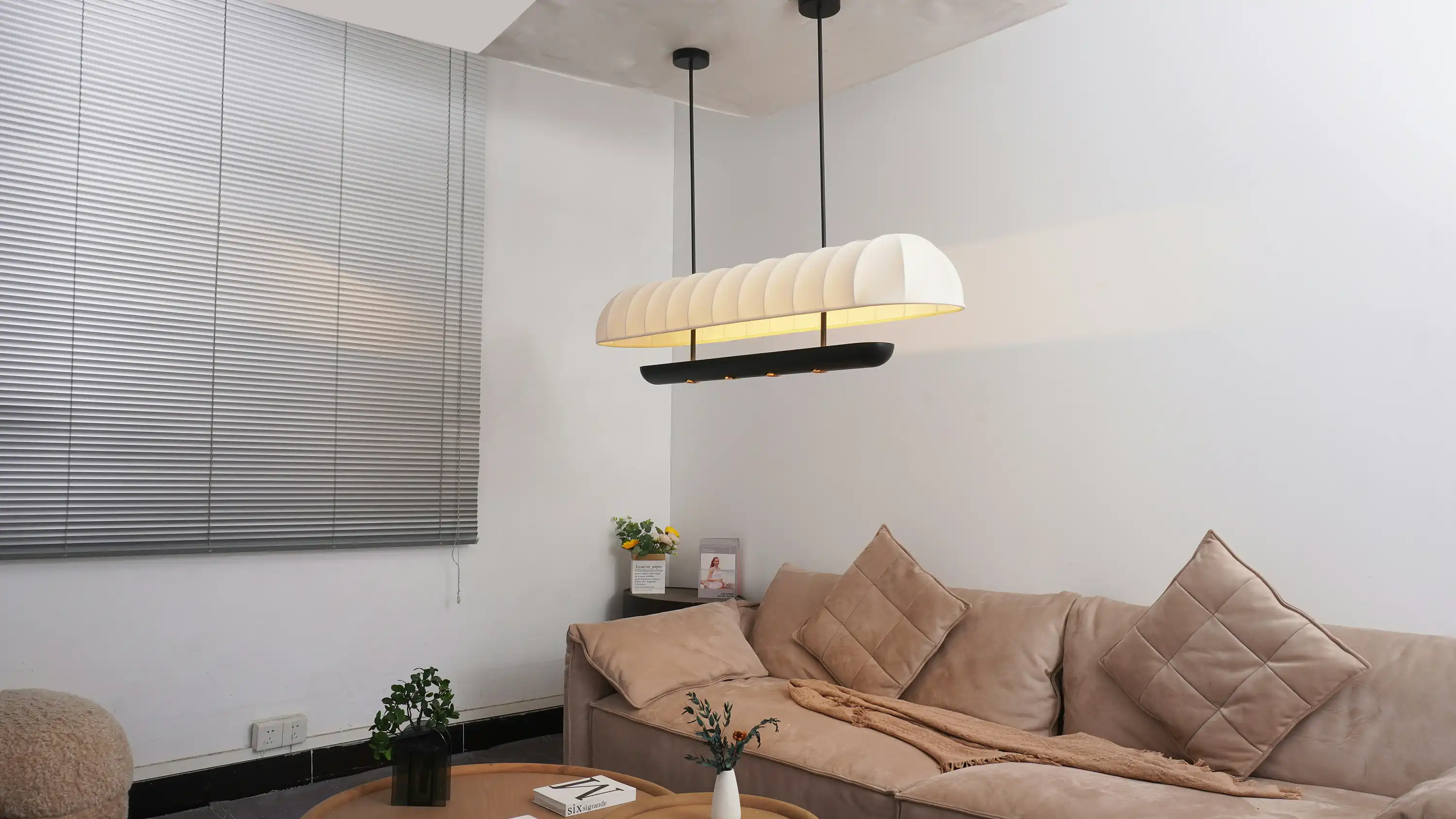Houston is proposing regulations for short-term rentals (STRs). The city has unveiled a draft ordinance to regulate the growing market within city limits. This proposed framework comes after thorough data collection and stakeholder feedback, with the city identifying over 8,500 operating in Houston as of November 2024.
Houston's move toward regulation reflects a national trend as cities balance the economic benefits of the sharing economy against neighborhood concerns about commercialization. This represents Houston's first attempt at creating a comprehensive framework specifically for STRs, moving them out of regulatory gray areas and establishing clear operational, accountability, and community standards guidelines.
What is a Short-Term Rental Under the Proposed Rules?
The proposed ordinance defines a short-term rental (STR) as any dwelling unit or portion rented for less than 30 consecutive days. This aligns with industry standards and most municipal regulations across the country.
This definition excludes several specific types of accommodations:
- Boarding homes
- Hotels and B&Bs
- Lodging facilities
- Alternative housing facilities
- Buildings regulated by federal or state agencies provide sleeping facilities.
- Leaseback arrangements where property seller's temporarily lease back their sold homes.
This definition distinguishes STRs from traditional hospitality businesses while acknowledging their residential nature, in line with Texas Supreme Court rulings that established them as residential uses. By defining STRs, the city establishes jurisdiction while exempting businesses regulated under different frameworks.
Registration Requirements
Under the proposed regulations, anyone operating a short-term rental within Houston city limits must register with the city. The ordinance states that it is illegal to operate, rent, lease, or advertise a short-term rental without a valid registration certificate.
The universal registration requirement creates a comprehensive STR properties database, enabling effective enforcement and transparency for the city and the public. Registration serves as the foundation of the regulatory structure, allowing Houston to monitor compliance, collect taxes, and ensure safety standards while creating equitable conditions for all operators.
Registration Fees and Costs
- Initial registration fee: $250-$275
- Annual renewal fee: $250-$275
These fees are based on:
- A cost of service study costs $273.
- About twice the average nightly rate in Houston ($250).
The proposed fee structure balances the regulation costs with the STR market economics. By setting fees at twice the average nightly rate, the city creates a reasonable barrier to entry that funds oversight without being excessively expensive for legitimate operators. This approach recognizes STRs as small businesses that can absorb modest regulatory costs while generating enough revenue to cover the city's enforcement expenses.
Application Requirements
The registration process requires STR operators to provide:
- Property address
- Owner name(s)
- Proof of ownership
- 24-hour emergency contact name and phone number
- List of online platforms that enabled property bookings
- Property floor plan
- Lot site plan showing parking locations.
- Proof of insurance.
- Declaration that STR use doesn’t violate deed restrictions, HOA rules, covenants, rental agreement terms, or minimum occupancy requirements.
- Declaration that the owner is responsible for any violations.
- Proof of registration/payment
- Any other information requested by the City of Houston.
The application requirements reflect the city's attempt to address multiple concerns: safety (floor plans, emergency contacts), compliance (HOA restrictions, occupancy tax), accountability (liability declarations), and logistics (parking). Some operators may find these burdensome, but they create a framework that protects guests, neighborhoods, and the city's tax base while clarifying what constitutes a well-managed short-term rental.
Potential Reasons for Denial
The city can deny a registration application for the following reasons:
- The application contains false, misleading, incorrect, or incomplete information.
- Failure to provide proof of insurance.
- Failure to provide proof of hotel occupancy tax registration or payment.
- The applicant had a certificate of registration revoked last year.
The denial criteria focus on honesty, financial responsibility, and past compliance rather than arbitrary restrictions. This suggests the city's primary concern is bringing STRs into a regulated system rather than limiting their numbers. By focusing on these criteria rather than imposing caps or zoning restrictions, Houston is taking a more market-friendly approach than other major cities while ensuring basic standards are met.
Operational Requirements for STR Owners
Once registered, STR operators must comply with several operational requirements:
General Rules
- Comply with the City of Houston noise ordinance.
- Comply with building and neighborhood protection regulations.
- Comply with solid waste and litter control regulations.
- Comply with all construction and fire codes.
- Cannot allow rentals for fewer than one night.
- Must pay hotel occupancy tax.
- Emergency contact must be available on-site within one hour of notification.
- Maintain a $1 million liability insurance policy during rental availability.
- Display the registration at a visible location.
The operational requirements emphasize that STRs must adhere to the same standards as other residential properties while acknowledging their quasi-commercial nature through requirements like insurance and emergency response protocols. The one-night minimum stay helps prevent properties from functioning as hotels, while the tax requirements ensure STRs contribute to municipal revenue streams like traditional lodging establishments. The one-hour response requirement represents a compromise between immediate availability and reasonable expectations for non-professional operators.
Information Display Requirements
STR owners must display the following information in a noticeable location, like the back of an entry door or in a central frame:
- Maximum occupants
- Emergency and non-emergency information including:
- Emergency services phone numbers
- Address to the nearest hospital or urgent care.
- Location of the nearest fire station
- Instructions for obtaining severe weather and disaster alerts
- Floor plan showing evacuation routes and locations of fire extinguishers and smoke detectors.
- Name and phone number of the emergency contact available 24 hours.
These information display requirements mirror those in traditional hospitality settings but are adapted for residential properties, highlighting the city's focus on guest safety. By mandating that critical information be accessible to guests, the ordinance creates minimum safety standards to protect visitors and the property. These requirements recognize that most STR guests lack the local knowledge that permanent residents have, providing essential emergency information in an unfamiliar environment.
Listing Requirements
Public listings on Airbnb or VRBO must include:
- Certificate of registration number
- Occupancy limits
- Applicable off-street parking requirements
The listing disclosure requirements serve multiple purposes: enabling easy compliance verification, setting clear expectations for potential guests, and addressing neighborhood concerns like overcrowding and parking congestion. By requiring registration numbers in listings, the city creates a simple way to monitor compliance across multiple booking platforms while giving neighbors and enforcement officials a quick reference for legitimate operations. The transparency about occupancy and parking helps guests make informed decisions while reducing conflicts with neighbors.
Additional On-Site Information
STR owners must maintain the following information on the premises (in a binder, drawer, or displayed):
- Trash/recycling pick-up days and information.
- Permissible sound levels
- Site plan showing:
- All dedicated legal parking spaces with relevant rules.
- All security devices and cameras with their monitoring descriptions.
These additional information requirements address friction points between short-term rentals and permanent residents, focusing on quality-of-life issues that generate complaints. The ordinance mitigates potential conflicts by requiring clear communication about important matters like trash collection and noise limits. Transparency about security devices balances guest privacy concerns with security needs, creating clear expectations for property owners and visitors.
Certificate Revocation
The city can revoke a registration certificate for various reasons:
- Registration was issued in error.
- False, incomplete, or misleading application information
- Failure to provide any information
- Failure to maintain insurance
- Failure to report and pay hotel occupancy taxes on time.
- Two or more citations for violations resulting in convictions within 12 months.
- Convictions for serious crimes including kidnapping, unlawful restraint, smuggling, trafficking, prostitution, assault, sexual assault, child abuse, or disorderly conduct.
The revocation provisions balance administrative requirements with public safety concerns. They establish escalating consequences for non-compliance while targeting serious issues for immediate action. Most technical violations require multiple incidents before triggering revocation, giving operators opportunities to correct problems, while serious criminal activity justifies immediate action. This approach acknowledges the distinction between administrative oversights and genuine threats to public safety, allowing proportional responses to different violations.
Enforcement and Penalties
Penalties for Non-Compliance
- Violations incur fines of $100 to $500 each.
- Each day a violation continues counts as a distinct violation.
- Owners or operators face criminal penalties and revocation of their certificates.
The penalty structure creates financial consequences for non-compliance without being excessively harsh for first-time or minor violations. Treating each day as a separate violation incentivizes prompt correction of issues rather than indefinite delays. The potential for criminal penalties in extreme cases signals that the city views these regulations as matters of public safety and community welfare, not merely administrative requirements, while giving enforcement officials flexibility.
Platform Requirements
The proposed ordinance also requires booking platforms:
- Platforms must remove STR listings within ten business days after a city notification that:
- A listing lacks a registration number.
- The registration number is invalid or has expired.
- A certificate of registration has been revoked.
The platform requirements acknowledge the critical role of booking services in the STR ecosystem, creating shared compliance responsibility. Rather than placing the entire enforcement burden on the city or individual operators, the ordinance establishes a partnership model where platforms must assist in removing non-compliant listings. The ten-day window balances immediate action and reasonable processing time, recognizing that platforms handle large volumes of listings while ensuring non-compliant properties do not remain accessible for too long.
Appeal Process
The proposed ordinance allows property owners to appeal decisions to revoke a registration certificate.
The inclusion of an appeals process demonstrates the city's commitment to due process and fairness in enforcement. This provision acknowledges that mistakes can happen and provides operators with recourse if they believe a revocation was unjustified. While details of the appeals process are not fully specified in the current draft, its existence signals that the ordinance aims to be reasonable and proportional in its enforcement rather than arbitrary or punitive.
Data on STRs in Houston
The city's analysis of STRs in Houston reveals:
- 8,548 short-term rentals are currently advertising citywide.
- 79% (6,719) have been identified to street addresses.
- 4,670 (about 55%) have been identified to unit numbers or HCAD property owners.
Service call data comparing STRs to non-STR residences shows:
- 27% of STRs received HPD calls compared to 17% of all single-family residences.
- STRs averaged 0.59 HPD calls per property, while non-STR residences averaged 0.30.
- 81% of HPD calls to STRs were priority 3 or below (less serious), the same percentage as for non-STR properties.
- 77% of STRs are in areas with high HPD call concentrations, compared to 45% of all residences.
- 8% of STRs received 311 calls compared to 5% of single-family residences.
The city's data analysis suggests that while STRs generate more service calls than traditional residences, the difference is modest and is likely due to location rather than inherent problems with short-term rentals. The concentration of STRs in areas with higher call volumes indicates that market forces are driving them toward commercial and entertainment districts rather than quiet residential neighborhoods. Importantly, the similarity in priority levels between STR and non-STR calls indicates that short-term rentals aren't generating disproportionately serious incidents, contrary to critics' concerns about party houses or criminal activity.
Public Feedback on the Proposal
Public feedback has been mixed. Based on 188 responses as of December 2024, 58% support the regulations and 42% oppose them.
Supporting Comments
Supporters express concerns about:
- Controlling noise, alcohol, and gatherings in residential areas
- The need for STR operators to pay taxes similar to hotels.
- The significance of funding enforcement measures
- Addressing neighborly issues with unethical STR operators
Feedback from regulation supporters reveals a community concerned with quality-of-life issues and fairness rather than opposition to STRs. Most supportive comments focus on specific neighborhood impacts like noise and parking rather than calls for outright bans, suggesting a constituency that wants reasonable guidelines. The emphasis on tax fairness indicates many supporters see STRs as legitimate businesses contributing to municipal revenue like their traditional hospitality counterparts.
Opposing Comments
Opponents express concerns about:
- Infringing on property rights
- Burdensome registration requirements
- High fees
- Landlords are responsible for tenant actions.
- The difficulty of the one-hour emergency response requirement
- Difficulty obtaining $1 million insurance coverage
Feedback from opponents centers on implementation challenges and property rights concerns rather than ideological objections to regulation. Many opposing comments target specific unreasonable or difficult requirements rather than rejecting the entire framework. This suggests potential for compromise on specific provisions while maintaining the overall structure, with opponents favoring simpler, less costly compliance requirements instead of complete deregulation.
Suggested Amendments
Feedback included suggestions for changes, such as:
- Adding noise limits
- Prohibiting nighttime outdoor events and gatherings.
- Limiting street parking for short-term rental guests
- Waiving fees for property owners with no previous issues.
- Relaxing the one-hour emergency response requirement
- Reevaluating the insurance requirement
- Adding clear street-facing registration information
The suggested amendments reveal a community engaged in improving the ordinance rather than simply accepting or rejecting it. Many proposed changes focus on balancing enforcement with reasonable expectations for property owners, particularly regarding emergency response times and insurance requirements. Other suggestions strengthen regulations around neighborhood impact concerns like noise and parking, indicating some regulation supporters believe the current draft doesn't address quality-of-life issues. The diversity of amendment proposals reflects Houston's varied neighborhoods and housing types, each with different priorities and concerns.
Timeline and Implementation
If the City Council approves the ordinance, it will include a 180-day implementation period for STR operators to comply. During this period, the city plans to:
- Approve a contract with Carahsoft for registration, hotline, compliance monitoring, and ongoing STR identification.
- Develop administrative rules.
- Conduct public education on ordinance requirements.
- Implement compliance mailings to all known STRs.
- Develop a public interactive dashboard displaying all registered STRs.
The implementation plan acknowledges a significant transition period to bring thousands of existing STRs into compliance with new regulations. The six-month window balances giving operators time to adapt and ensuring timely enforcement. The contract with Carahsoft suggests the city recognizes the technical challenges of monitoring thousands of listings across multiple platforms, opting to leverage specialized expertise. The emphasis on education before enforcement indicates a sincere approach prioritizing voluntary compliance over punitive measures.
FAQs
How do I apply for a Certificate of Registration?
Online at www.houstontx.gov/ara/str.html (registration link available after ordinance approval)
What is the effective date of the proposed STR Ordinance?
Pending City Council approval, there is a 180-day implementation period for registrants to adhere to.
Why isn't the City regulating STRs like commercial properties?
The Texas Supreme Court ruled that STRs are a residential use.
Will the City regulate STR pricing?
No.
How do I pay the Hotel and Occupancy Tax (HOT)?
STR properties in Houston city limits pay HOT through Houston First Corporation. Registration and payments are online at www.houstonfirst.com.
Is there a limit on the number of STRs allowed in the city or how many a person may possess?
There is no limit on the total number of STRs allowed in the city or how many an owner can operate. Each requires a separate registration certificate.
How can I lodge a complaint against an STR breaking regulations?
A webpage on the City's website will provide STR data and information, including a phone number and portal for submitting complaints.
Are Certificates of Registration transferable?
No. Registrations are non-transferable. If a property is sold, the new owner must apply for a new registration certificate.
What are the occupancy limits for short-term rentals?
The ordinance doesn’t specify occupancy limits. STR owners must disclose them for each property.
Do I need to notify the City if I stop renting my property as a short-term rental?
Yes, notify the City to keep the public dashboard current.
Conclusion
These proposed regulations represent a significant shift in Houston’s short-term rentals. The city has attempted to balance STR operators’ interests with neighborhood concerns, using data to guide policy decisions.
Houston's proposed approach reflects a moderate position in the national short-term rental regulation debate. It avoids both the laissez-faire approach of minimal oversight and the severe restrictions of some cities. The ordinance acknowledges STRs as legitimate businesses with economic benefits while imposing basic standards to address community concerns. Data analysis showing minor differences between STR and traditional properties suggests the regulations are proportional to actual impacts rather than unfounded fears. As the feedback process continues, the final ordinance will evolve to address specific stakeholder concerns while maintaining its essential structure of registration, safety standards, and accountability mechanisms.





